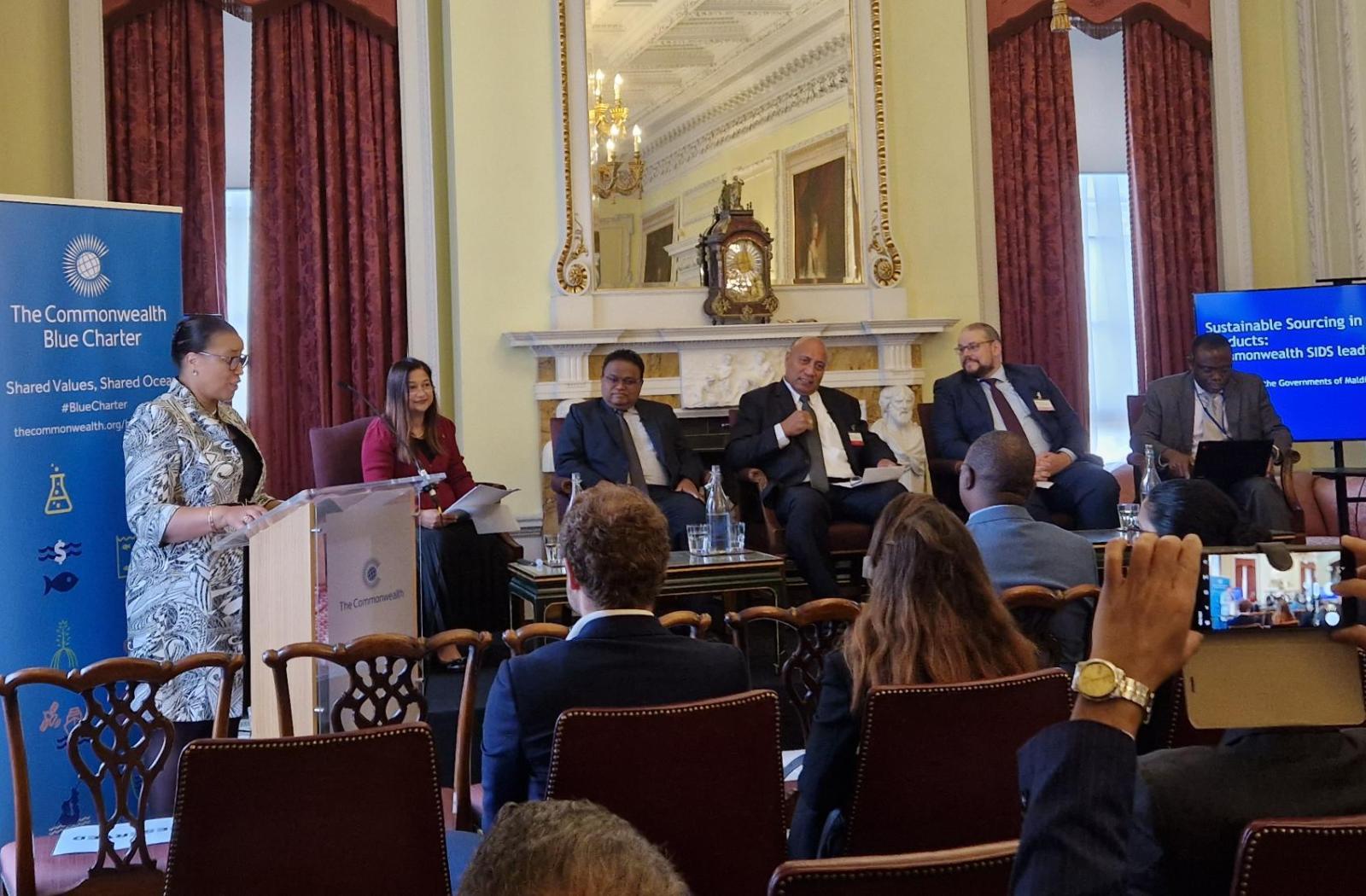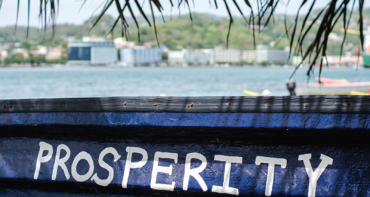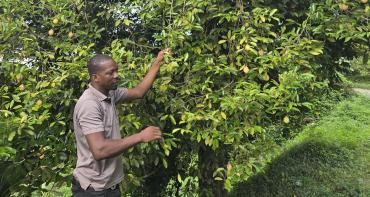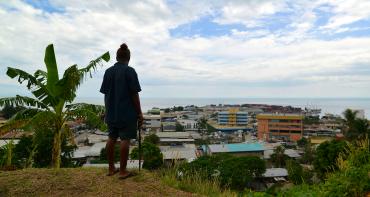Small Island Developing States (SIDS) are taking the lead in promoting responsible trade in sustainable fisheries by fostering collaboration and sharing successful strategies.

In the margins of the Commonwealth Trade Ministers Meeting, the governments of Maldives and Kiribati co-hosted a high-level breakfast event focusing on sustainable sourcing practices in the trade of fish products.
As the co-Champions of the Commonwealth Blue Charter’s Sustainable Coastal Fisheries Action Group, the two island nations brought together policymakers, industry experts, and stakeholders to foster collaboration and discuss successful strategies for sustainable sourcing.
Sustainable fishing practices
The aim was to identify some of the challenges and opportunities for further advancements in the sustainable fishing industry throughout the Commonwealth.
Opening the event, the Commonwealth Secretary-General, Rt Hon Patricia Scotland KC, emphasised that the global blue economy could be worth more than US$3 trillion by 2030. Trade in sustainable ocean products, including fish, lies at the heart of that potential value - striking the balance between economic development and ecological responsibility.
The Secretary-General stated:
“Unsustainable fishing practices are one of the main threats to marine biodiversity. This is a serious challenge – but I am an optimist, and we can see that the tide is beginning to turn.
“Sustainable practices are becoming the benchmark, with our Small Island Developing States – or, as I call them, Big Blue Ocean States – leading the way.”
She highlighted pole-and-line tuna fishing in the Maldives as an example of how simple changes to trade rules and practice can boost sustainability and the blue economy.
In addition to their roles as co-Champions of the Commonwealth Blue Charter’s Sustainable Coastal Fisheries Action Group, Maldives and Kiribati have been at the forefront of promoting sustainable fishing practices and providing benchmarks within their regions.
These small island states have demonstrated exemplary commitment to responsible trade in sustainable fisheries. The Maldives, for instance, has been a pioneer in pole-and-line tuna fishing, showcasing how this can enhance sustainability.
Meanwhile, Kiribati has emphasised the importance of certification schemes to ensure sustainable fishing, recognising the unique circumstances and challenges faced by SIDS in attaining such certifications. Through their sustainable fishing initiatives, Maldives and Kiribati serve as shining examples and leaders in promoting sustainable fish trade in their respective regions.
Panel discussion
The panel discussion featured distinguished speakers who shared their expertise and insights into sustainable sourcing in the fish trade. H.E Dr Farah Faizal, High Commissioner of the Maldives, moderated the discussion.
Riyaz Mansoor, Deputy Minister of Economic Development from Maldives, elaborated on the country’s experience in creating a market for sustainable pole & line tuna. He stressed the need to promote responsible consumption of fish products, in addition to sustainable fishing practices.
Hon. Bootii Nauan, Minister of Tourism, Commerce, Industry, and Cooperatives of Kiribati, underlined the importance of certification schemes to ensure sustainable fishing, while also pointing to the unique circumstances of SIDS and the challenges they often face attaining such certification.
Addressing this, Dr Rohan Currey, Chief Science and Standards Officer at the Marine Stewardship Council, shed light on solutions for designing sustainable fishery certification, including criteria and standards, that is accessible to small states, considering their specific needs and limitations.
Bridging the digital divide
Dr Benjamin Kwasi Addom, an adviser in Agriculture & Fisheries Trade Policy at the Commonwealth Secretariat, focused on how bridging the digital divide could encourage sustainable sourcing of agriculture and fisheries products. He emphasised the role of technology in enhancing traceability and transparency across the supply chain.
Following a vibrant dialogue with the audience, the event concluded with closing remarks from Dr Nick Hardman-Mountford, Head of Oceans and Natural Resources at the Commonwealth Secretariat. He expressed his gratitude to all participants and highlighted the significance of collaboration in promoting sustainable trade in fish products.
By fostering collaboration and knowledge exchange, the event aimed to contribute to the collective efforts towards preserving marine ecosystems while supporting the livelihoods of communities dependent on fisheries around the world.
About the Commonwealth Blue Charter
Media contact
- Josephine Latu-Sanft Senior Communications Officer, Communications Division, Commonwealth Secretariat
- +44 20 7747 6476 | E-mail



